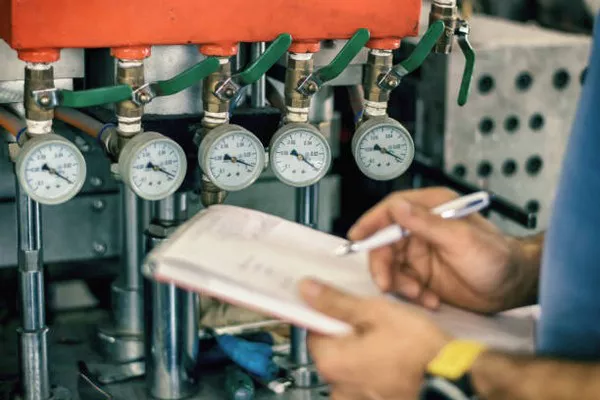Process control and instrumentation play pivotal roles in ensuring the efficiency, safety, and reliability of industrial operations. These two interconnected fields are indispensable in diverse industries, ranging from chemical and petrochemical to manufacturing and power generation. In this article, we will delve into the essence of process control and instrumentation, exploring their definitions, significance, and the technologies that drive them.
Defining Process Control:
Process control refers to the management of a series of operations within an industrial process to ensure desired outcomes, such as quality, efficiency, and safety. It involves monitoring and regulating variables such as temperature, pressure, flow, and level to maintain optimal conditions. The primary goal is to achieve a stable and consistent process, minimizing deviations from desired parameters.
Process control is classified into two main types: open-loop and closed-loop (feedback) control systems. In an open-loop system, the controller sends commands without receiving feedback, while a closed-loop system continuously monitors the process and adjusts control actions based on real-time feedback.
Key Components of Process Control:
Sensors: Sensors are devices that detect changes in the process variables and convert them into electrical signals. Common sensors include temperature sensors, pressure transmitters, level detectors, and flow meters. The accuracy and reliability of sensors are critical for precise control.
Controllers: Controllers receive information from sensors and determine the appropriate action to maintain the desired setpoints. They can be programmable logic controllers (PLCs), distributed control systems (DCS), or more advanced computer-based systems. Proportional, integral, and derivative (PID) controllers are widely used for their effectiveness in regulating processes.
Actuators: Actuators carry out the control actions by adjusting the process variables. They can be valves, motors, or other devices that modify the flow of materials, pressure, or temperature. The speed and accuracy of actuators are crucial for timely and precise adjustments.
Understanding Instrumentation:
Instrumentation is the science and art of designing, selecting, and utilizing devices for measuring, monitoring, and controlling industrial processes. Instruments provide the data needed for effective process control, allowing operators to make informed decisions. Instrumentation encompasses a wide array of devices, each serving a specific purpose in the monitoring and control of processes.
Key Instruments in Process Control and Instrumentation:
Pressure Gauges and Transmitters: Pressure gauges measure fluid pressure, while transmitters convert pressure into electrical signals for processing by controllers. They are essential in maintaining the desired pressure levels within a system.
Temperature Sensors and Controllers: Temperature sensors, such as thermocouples and resistance temperature detectors (RTDs), monitor and transmit temperature data. Temperature controllers ensure that the process operates within specified temperature ranges.
Flow Meters: Flow meters quantify the rate of fluid movement within a system. They play a crucial role in managing flow rates to optimize efficiency and prevent potential issues like overflows or blockages.
Level Sensors and Controllers: Level sensors detect the height of liquid or solid materials in tanks or vessels, while level controllers manage levels to prevent overflow or depletion.
Analytical Instruments: Instruments like gas analyzers and spectrometers are employed for analyzing the chemical composition of substances within a process. They are vital in ensuring product quality and compliance with industry standards.
Significance of Process Control and Instrumentation:
Enhanced Efficiency: Process control and instrumentation contribute to increased efficiency by minimizing waste, optimizing resource utilization, and reducing downtime. Precise control over variables ensures that processes operate at their optimum conditions.
Improved Safety: Accurate monitoring and control of critical variables enhance safety by preventing hazardous conditions, such as excessive pressure, temperature, or chemical concentrations. Automated safety systems can respond rapidly to abnormal situations, mitigating risks and protecting personnel and assets.
Consistent Product Quality: In industries where product quality is paramount, such as pharmaceuticals and food production, process control and instrumentation ensure consistent product characteristics. This consistency is achieved by closely monitoring and controlling variables throughout the manufacturing process.
Regulatory Compliance: Many industries are subject to stringent regulations governing processes and emissions. Process control systems with advanced instrumentation help companies adhere to these regulations, avoiding penalties and ensuring environmental responsibility.
Cost Reduction: Through the optimization of processes and resource utilization, process control and instrumentation contribute to cost reduction. Efficient control systems can lead to energy savings, reduced raw material consumption, and lower maintenance costs.
Technological Advances in Process Control and Instrumentation:
Digitalization and Industry 4.0: The advent of Industry 4.0 has brought about a paradigm shift in process control and instrumentation. Digitalization enables the integration of smart sensors, data analytics, and artificial intelligence, providing real-time insights and predictive capabilities for proactive decision-making.
Wireless Communication: Wireless technology has eliminated the need for extensive wiring in industrial settings. Wireless sensors and communication systems offer flexibility and ease of installation, especially in large and complex facilities.
IoT and Cloud Computing: The Internet of Things (IoT) facilitates connectivity between devices and systems, enabling remote monitoring and control. Cloud computing enhances data storage, accessibility, and collaborative decision-making by providing a centralized platform for information exchange.
Conclusion:
Process control and instrumentation are indispensable elements in modern industrial operations. Their integration ensures that processes run efficiently, safely, and in compliance with regulatory standards. As technology continues to advance, the capabilities of process control and instrumentation are expanding, enabling industries to achieve higher levels of automation, precision, and sustainability. In an era where efficiency and environmental responsibility are paramount, the role of process control and instrumentation becomes increasingly crucial in shaping the future of industrial processes.

